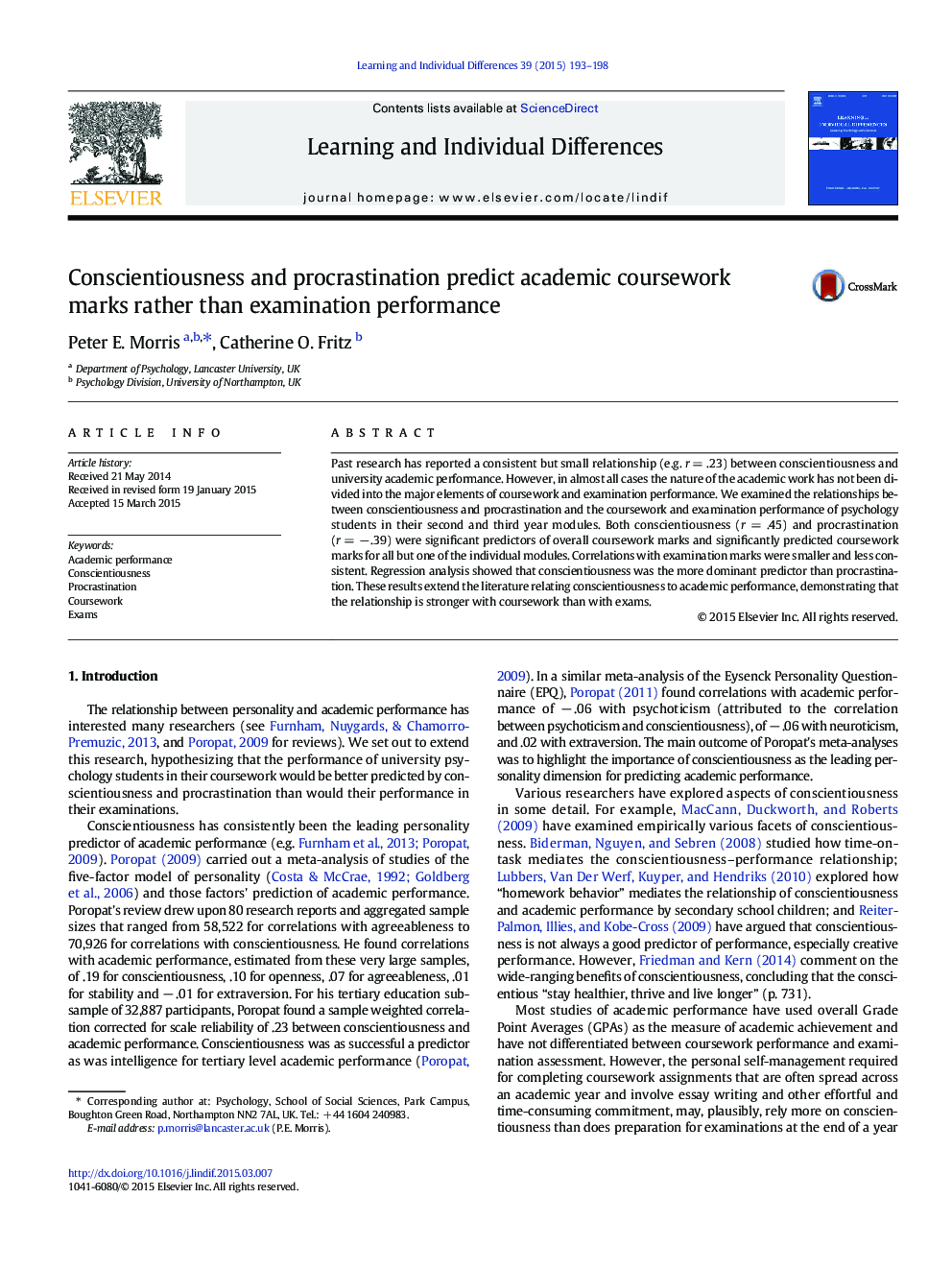| کد مقاله | کد نشریه | سال انتشار | مقاله انگلیسی | نسخه تمام متن |
|---|---|---|---|---|
| 364557 | 621074 | 2015 | 6 صفحه PDF | دانلود رایگان |
• Academic coursework performance is predicted by conscientiousness.
• Academic coursework performance is also predicted by procrastination.
• Relative dominance weights for conscientiousness & procrastination were 73% & 27%.
• Exam performance is only weakly related to these aspects of personality.
• Neither type of performance was related to other Big-5 personality factors.
Past research has reported a consistent but small relationship (e.g. r = .23) between conscientiousness and university academic performance. However, in almost all cases the nature of the academic work has not been divided into the major elements of coursework and examination performance. We examined the relationships between conscientiousness and procrastination and the coursework and examination performance of psychology students in their second and third year modules. Both conscientiousness (r = .45) and procrastination (r = − .39) were significant predictors of overall coursework marks and significantly predicted coursework marks for all but one of the individual modules. Correlations with examination marks were smaller and less consistent. Regression analysis showed that conscientiousness was the more dominant predictor than procrastination. These results extend the literature relating conscientiousness to academic performance, demonstrating that the relationship is stronger with coursework than with exams.
CorrelationPoint estimates, one-tailed 95% confidence intervals (bars) and 99% confidence interval distributions are depicted.Figure optionsDownload as PowerPoint slide
Journal: Learning and Individual Differences - Volume 39, April 2015, Pages 193–198
